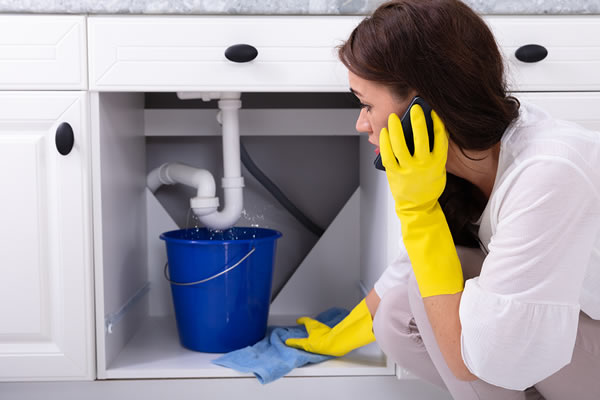Overview To Water Leak Detection In Your Home
Overview To Water Leak Detection In Your Home
Blog Article
We have noticed this post on Locating water leaks below on the internet and felt it made good sense to share it with you here.

The moment you locate a leak, calling your plumber for repair work is the very best option. Some small water leaks may not be noticeable. If you can not find it with your naked eyes, right here are some hacks that assist.
Early discovery of leaking water lines can reduce a possible disaster. Besides saving you money, it will certainly decrease the worry as well as aggravation.
Inspect Water Intake
Analyze your water bills and track your water intake. As the one paying it, you should discover if there are any kind of disparities. If you identify sudden changes, regardless of your consumption being the same, it suggests that you have leaks in your plumbing system. Bear in mind, your water bill need to fall under the exact same variety monthly. An unexpected spike in your expense suggests a fast-moving leakage.
A consistent rise every month, also with the same behaviors, shows you have a slow leak that's also slowly rising. Call a plumber to thoroughly inspect your property, specifically if you really feel a cozy location on your flooring with piping beneath.
Assess the scenario and also check
House owners must make it a behavior to check under the sink counters and also even inside closets for any type of bad odor or mold growth. These 2 warnings suggest a leakage so prompt interest is called for. Doing routine assessments, even bi-annually, can save you from a significant trouble.
Check Out the Water Meter
Examining it is a proven way that assists you uncover leakages. If it moves, that suggests a fast-moving leak. This means you may have a sluggish leak that can also be underground.
Asses Exterior Lines
Do not fail to remember to inspect your outside water lines too. Ought to water leak out of the connection, you have a loosened rubber gasket. One little leak can squander loads of water as well as spike your water costs.
Do a Food Coloring Examination
When it concerns water intake, 30% comes from toilets. Examination to see if they are running appropriately. Drop specks of food color in the container and wait 10 mins. If the shade somehow infiltrates your dish during that time without flushing, there's a leakage in between the container as well as bowl.
Examine for discolorations and also damaging as many devices and pipelines have a life expectancy. If you suspect dripping water lines in your plumbing system, do not wait for it to escalate.
The minute you locate a leak, calling your plumber for fixings is the finest solution. Some tiny water leakages might not be visible. Inspecting it is a surefire way that aids you find leaks. One little leak can waste tons of water and also spike your water expense.
If you presume leaking water lines in your plumbing system, do not wait for it to intensify.
5 Signs that Your Home Has a Hidden Leak
Your water bill is unusually high without explanation
Generally, your water bill tends to stay consistent throughout the year as long as the same number of people live in your household year round. The bill might be higher during certain times of the year, such as summer, when your lawn may require more watering than it does in cooler months. However, if you notice a rise in your water bill that you can’t explain, it’s an indicator that there’s a hidden leak somewhere in your home.
You hear running water
One of the biggest signs that you have a water leak is the sound of rushing water when no plumbing fixtures are on and when no water-using appliances are running. If you hear running water in your walls when no water is being used anywhere in your home, locate your home’s main water shut-off valve, shut off your water supply, and contact a plumber at once.
Your home smells musty
Hidden leaks often occur in dark spaces, such as behind walls or under carpeting. Incidentally, darkness and moisture can create an ideal breeding environment for mold or mildew. If you start to smell mildew or the scent of rotting wood or stagnant water around your home, it’s a fair bet that a leak is the culprit.
You find wet spots around your home
The wet spots usually show up as moist areas in your carpeting. If your home has a basement level, puddles on the floor could indicate a slab leak. Outside, unexplainable puddles or lush, green patches in your yard often mean that there’s a leak in your sewer line or main water line.
You have stains, bubbles, or condensation on your walls/ceiling
Stains or condensation on your walls or ceiling are both major signs of a hidden leak. Also, drywall (AKA. sheetrock) is very absorbent, and as it takes on more water from a leak behind a wall, it will start to bubble, swell, or warp. If you see this happening in your home, don’t wait to contact a plumber before the water damage spreads.
https://www.ezflowplumbingaz.com/blog/2019/june/5-signs-that-your-home-has-a-hidden-leak/

I came across that blog posting about Leaking water lines when doing a lookup on the internet. Are you aware of another individual who is very much interested in the niche? Take a moment to promote it. Thank you so much for going through it.
Report this page